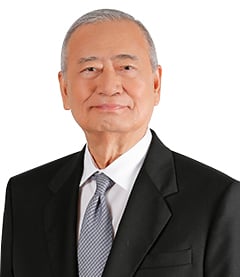-
Audit approach overview
Our audit approach will allow our client's accounting personnel to make the maximum contribution to the audit effort without compromising their ongoing responsibilities
-
Annual and short period audit
At P&A Grant Thornton, we provide annual and short period financial statement audit services that go beyond the normal expectations of our clients. We believe strongly that our best work comes from combining outstanding technical expertise, knowledge and ability with exceptional client-focused service.
-
Review engagement
A review involves limited investigation with a narrower scope than an audit, and is undertaken for the purpose of providing limited assurance that the management’s representations are in accordance with identified financial reporting standards. Our professionals recognize that in order to conduct a quality financial statement review, it is important to look beyond the accounting entries to the underlying activities and operations that give rise to them.
-
Other Related Services
We make it a point to keep our clients abreast of the developments and updates relating to the growing complexities in the accounting world. We offer seminars and trainings on audit- and tax-related matters, such as updates on Accounting Standards, new pronouncements and Bureau of Internal Revenue (BIR) issuances, as well as other developments that affect our clients’ businesses.
-
Tax advisory
With our knowledge of tax laws and audit procedures, we help safeguard the substantive and procedural rights of taxpayers and prevent unwarranted assessments.
-
Tax compliance
We aim to minimize the impact of taxation, enabling you to maximize your potential savings and to expand your business.
-
Corporate services
For clients that want to do business in the Philippines, we assist in determining the appropriate and tax-efficient operating business or investment vehicle and structure to address the objectives of the investor, as well as related incorporation issues.
-
Tax education and advocacy
Our advocacy work focuses on clarifying the interpretation of laws and regulations, suggesting measures to increasingly ease tax compliance, and protecting taxpayer’s rights.
-
Business risk services
Our business risk services cover a wide range of solutions that assist you in identifying, addressing and monitoring risks in your business. Such solutions include external quality assessments of your Internal Audit activities' conformance with standards as well as evaluating its readiness for such an external assessment.
-
Business consulting services
Our business consulting services are aimed at addressing concerns in your operations, processes and systems. Using our extensive knowledge of various industries, we can take a close look at your business processes as we create solutions that can help you mitigate risks to meet your objectives, promote efficiency, and beef up controls.
-
Transaction services
Transaction advisory includes all of our services specifically directed at assisting in investment, mergers and acquisitions, and financing transactions between and among businesses, lenders and governments. Such services include, among others, due diligence reviews, project feasibility studies, financial modelling, model audits and valuation.
-
Forensic advisory
Our forensic advisory services include assessing your vulnerability to fraud and identifying fraud risk factors, and recommending practical solutions to eliminate the gaps. We also provide investigative services to detect and quantify fraud and corruption and to trace assets and data that may have been lost in a fraud event.
-
Cyber advisory
Our focus is to help you identify and manage the cyber risks you might be facing within your organization. Our team can provide detailed, actionable insight that incorporates industry best practices and standards to strengthen your cybersecurity position and help you make informed decisions.
-
ProActive Hotline
Providing support in preventing and detecting fraud by creating a safe and secure whistleblowing system to promote integrity and honesty in the organisation.
-
Accounting services
At P&A Grant Thornton, we handle accounting services for several companies from a wide range of industries. Our approach is highly flexible. You may opt to outsource all your accounting functions, or pass on to us choice activities.
-
Staff augmentation services
We offer Staff Augmentation services where our staff, under the direction and supervision of the company’s officers, perform accounting and accounting-related work.
-
Payroll Processing
Payroll processing services are provided by P&A Grant Thornton Outsourcing Inc. More and more companies are beginning to realize the benefits of outsourcing their noncore activities, and the first to be outsourced is usually the payroll function. Payroll is easy to carve out from the rest of the business since it is usually independent of the other activities or functions within the Accounting Department.
-
Our values
Grant Thornton prides itself on being a values-driven organisation and we have more than 38,500 people in over 130 countries who are passionately committed to these values.
-
Global culture
Our people tell us that our global culture is one of the biggest attractions of a career with Grant Thornton.
-
Learning & development
At Grant Thornton we believe learning and development opportunities allow you to perform at your best every day. And when you are at your best, we are the best at serving our clients
-
Global talent mobility
One of the biggest attractions of a career with Grant Thornton is the opportunity to work on cross-border projects all over the world.
-
Diversity
Diversity helps us meet the demands of a changing world. We value the fact that our people come from all walks of life and that this diversity of experience and perspective makes our organisation stronger as a result.
-
In the community
Many Grant Thornton member firms provide a range of inspirational and generous services to the communities they serve.
-
Behind the Numbers: People of P&A Grant Thornton
Discover the inspiring stories of the individuals who make up our vibrant community. From seasoned veterans to fresh faces, the Purple Tribe is a diverse team united by a shared passion.
-
Fresh Graduates
Fresh Graduates
-
Students
Whether you are starting your career as a graduate or school leaver, P&A Grant Thornton can give you a flying start. We are ambitious. Take the fact that we’re the world’s fastest-growing global accountancy organisation. For our people, that means access to a global organisation and the chance to collaborate with more than 40,000 colleagues around the world. And potentially work in different countries and experience other cultures.
-
Experienced hires
P&A Grant Thornton offers something you can't find anywhere else. This is the opportunity to develop your ideas and thinking while having your efforts recognised from day one. We value the skills and knowledge you bring to Grant Thornton as an experienced professional and look forward to supporting you as you grow you career with our organisation.
As President, I will devote my whole six-year term to provide a much more effective, efficient, decisive and widely focused national leadership with the primary objective of transforming the Filipino nation into a fair, just, equitable and economically well-developed society and, thus, take a big leap forward from what it is today.
The centerpiece and overarching program of that transformation is the substantial reduction, if not near eradication, of widespread poverty and hunger.
Through this series of commentaries, I will endeavor to communicate the significant programs that our administration will undertake to achieve that exceedingly challenging transformation objective, but nonetheless a doable pursuit given the zealousness of our purpose.
As mentioned in the previous series entitled, “West Philippine Sea,” there are urgent issues that need to be properly focused at and dealt with right at the outset of our administration. The first one, which is presented in that first part, involves the current issues about the West Philippines Sea. The second one, which is covered in this part, is about containing the present destructive COVID-19 contagion.
As everyone agrees, it is extremely important that the country contains the currently raging COVID-19 pandemic as quickly as possible to enable the country to start recovering from the economic devastation resulting from the measures applied to control the pandemic. As it is, the country already suffered an economic decline of 9.5% in the whole of 2020.
The economy continued to decline by 4.2% in the first quarter of 2021. These declines deeply wounded the economy and lead to widespread suffering among our people. We simply need to arrest this decline, reverse it, and put the economy back into track for much-needed recovery and onto a much-higher trajectory of economic growth. The only way to do all these is to try to achieve herd immunity as early as government resolute actions can make it happen.
There are two challenging tasks that need to be effectively dealt with to achieve quick herd immunity: accelerating the rate of vaccination and removing people’s hesitancy to vaccination.
Currently, based on official pronouncements, the goal is to vaccinate 58 million to 70 million Filipinos in order to achieve herd immunity. To be safe, our administration will use the high end of that range. Such vaccination level will also approximate the apparent world standard of 70% of population for achieving herd immunity. The target of vaccinating 70 million Filipinos will need the equivalent of 140 million vaccine doses (ignoring for this purpose the use of one-shot vaccines).
Official data indicate that currently about 4 million doses have already been injected, leaving a balance of 136 million doses. As officially reported, the present daily vaccination rate is 120,000 doses. Even when this daily rate is doubled, herd immunity can only be achieved by the end of 2022. Given the vagaries attendant to such a huge undertaking, particularly those relating to the ready availability of vaccine supply and the logistics involved in moving the vaccines, it is almost certain that when recognizing these considerations herd immunity may only be achieved well beyond 2022.
On the basis of the foregoing evaluation, our administration will endeavor to achieve herd immunity by or earlier than June 30, 2023. That maybe difficult to accomplish, but I consider it doable. We will try to learn from the current experience and inject management effectiveness, with adequate medical professional support, in the whole endeavor.
Hesitancy to vaccination appears to be widespread, especially in the rural areas. It is therefore a big obstacle. In dealing with this huge problem, it maybe more effective to decentralize to the provinces and cities the activities to attract and persuade hesitant citizens to be vaccinated. These LGUs shall be required to do the groundwork to achieve 70% vaccination rate in their respective geographical areas. For this purpose, they will be provided by the national government with the necessary monitoring tools. At the national level, we will organize a comprehensive campaign using traditional and social media.
We will regularly monitor and be earnestly watchful of the achievement rate at the national level and do whatever is necessary to fix any lag that occurs to ensure the achievement of the herd immunity target date, including helping to the extent required any LGUs that may need assistance.
The pandemic has exposed two significant institutional weaknesses in providing health care generally and combating particularly a scourge like COVID-19.
One relates to the Philippine Health Insurance Corp. (PhilHealth), specifically on two issues–incidence of corruption in this government agency and the much delayed payment of claims for reimbursements by the hospitals. Corruption is widespread and ingrained in the Philippine government system. As a whole subject, it may best be covered in a separate commentary.
As to PhilHealth itself, to contain corruption in this agency, we will seriously consider the privatization of much of its functions. The part that may lend well to privatization is the receiving and processing of benefit claims. These are the activities where opportunities for corruption can easily be exploited by unscrupulous persons. Privatizing these activities will remove them from the reach of government corruption. Moreover, acquisition of operating assets for these activities will also be out of government control and, thus, removing another opportunity for government corruption.
The receipt of healthcare contributions from employers and employees and any additional funding from the government, and actual payment of claims that were already evaluated by the private entity will remain with PhilHealth.
As to the long delays in payment of benefit claims, the privatization described above will certainly lead to greater efficiency in the processing of benefit claims and therefore may help reduce the delays in payment to the hospitals.
Nevertheless, we will review and study the delays as these may also be due to insufficient funding. If so, we will have to assess the sufficiency of PhilHealth members’ contributions and the government’s capacity to provide the funds to fill the gap in funding the entire universal health care system.
Virus infection will not end with COVID-19. And for a country of more than 100 million people, the Philippines must acquire at least the basic and intermediate capabilities to develop vaccines to enable the country to avoid entire dependency on foreign supply which necessarily delays the country’s containment response to any future contagion, whether occurring in our country only or all over the world.
For this purpose, we will thoroughly review and evaluate the structure, mission and funding of both the Infectious Diseases Office and Research Institute for Tropical Diseases of the Department of Health. When such basic and intermediate capabilities, however defined, have been established, the necessary link with one or more local or international vaccine developers and manufacturers will be pursued to acquire a quick vaccination response to any future virus contagion.
COVID-19 has wreaked and will continue to wreak havoc on the Philippine economy and inflict severe suffering on our people. We will endeavor to limit and ultimately stop such destructive consequences of the present pandemic. Moreover, we will strengthen and install the institutions and processes that may minimize damages arising from any future similar catastrophes.
As published in Mindanao Times, dated 05 October 2021




